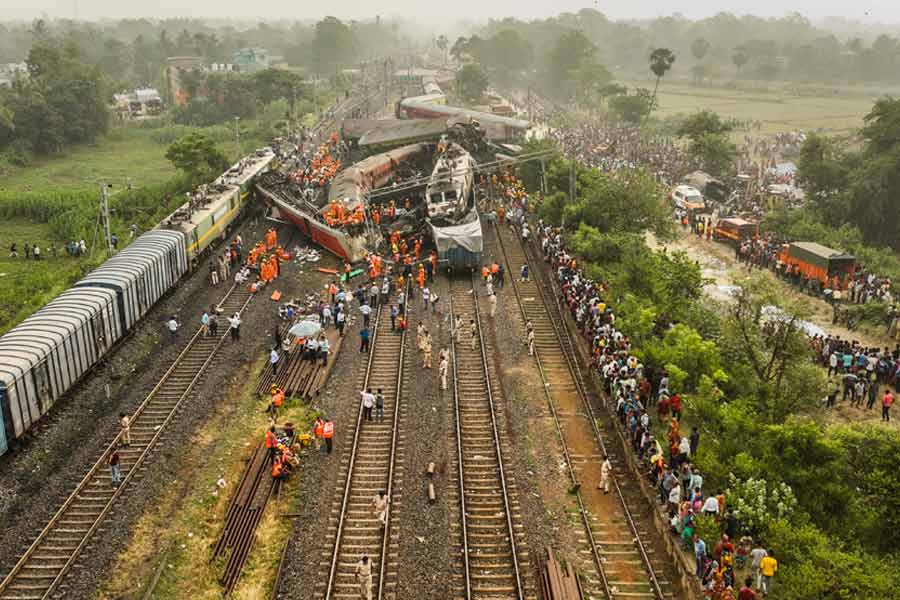Doctors in Bhubaneswar are having a tough time collecting DNA samples from disfigured and swelling bodies from Friday’s triple-train accident in Balasore and preserving the samples for investigating agencies.
The doctors are also collecting DNA samples from relatives of victims for matching, a process that has been complicated by the fact that there are multiple claimants to a body. The doctors said they were aware that they could not afford to make any mistakes as that could land them in a legal tangle.
Additional professor, department of forensic medicine and toxicology at AIIMS Bhubaneswar, Sudipta Singh, told The Telegraph, “It’s a testing time for us. But we areall working with dedication. We have been alert and have not slept for 48 hours at a stretch. Getting constant phone calls, supervising the work, receiving bodies in batches and storing them properly in the hospital morgues is a tough task.”
Singh added: “We were not prepared for such a tragic accident. But when it happened, we tightened our belts. Odisha government officials, particularly the police, helped us avoid legal hassles. As we don’t have the required number of deep freezers, we had asked for huge ice blocks. The AIIMS administration, with the help of the Odisha government, arranged for the ice blocks in no time and we did not face any difficulty in preserving the bodies. The bodies need to be preserved at -18 degree Celsius.”
The AIIMS has also procured five containers from Paradip to store bodies for a longer period.
Singh said the identification process was complex as the bodies were disfigured and swelling. “Once a body reaches here, we embalm it with formalin and keep it on an ice block or in a deep freezer. Then the process begins to collect and store the DNA samples. It’s a cumbersome process but we are trying our best to collect tissues for DNA sampling and hand them over to the investigating agency. We are trying to preserve the DNA sample of each victim of the train accident. The investigating agency sends the samples to Delhi for DNA analysis. Sometimes, we also perform DNA finger testing,” he said.
Sources said 33 samples had so far been sent to Delhi for DNA analysis.
Explaining why the DNA samples were being collected, Dr Laxmidhar Behera of the Government Capital Hospital in Bhubaneswar said: “There are a number of claimants to a body. Only through DNA testing can the body be identified and handed over to the right claimant. We need to be careful. The DNA needs to be matched with the samples of the relatives.”
Behera said it was not easy to ascertain the identity of a body during such a grave emergency. “Sometimes we identify bodies from clothes, watches and also tattoos. But DNA sampling is a must.”
Behera said he was spending a lot of time in the postmortem room. “From the smell, we can easily identify whether the patient died by consuming poison, or of a heart attack or from an accident. It also gives an indication whether the bodies are decomposed or not,” he said.











